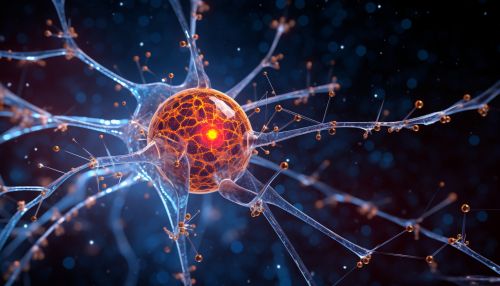Axonal Transport in Neuronal Function
Introduction
Axonal transport, also known as axoplasmic transport, is a cellular process responsible for movement of mitochondria, lipids, synaptic vesicles, proteins, and other cell parts (i.e., "cargo") to and from a neuron's cell body through the cytoplasm of its axon. This transport process is essential for the maintenance and function of the neuron's axon, and it also contributes to the overall health and functionality of the neuron itself.


Mechanism of Axonal Transport
Axonal transport is facilitated by motor proteins that move along microtubule tracks, which run along the length of the axon. The two primary types of motor proteins involved in axonal transport are kinesins and dyneins. Kinesins generally move cargo away from the cell body (anterograde transport), while dyneins move cargo towards the cell body (retrograde transport).
Anterograde Transport
Anterograde transport, mediated by kinesins, is responsible for moving organelles, proteins, lipids, and other materials from the cell body to the distal ends of the axon. This direction of transport is crucial for supplying new materials to the growing and active parts of the axon and its terminals.
Retrograde Transport
Retrograde transport, mediated by dyneins, moves used and recycled materials, as well as some types of signaling molecules, from the axon back to the cell body. This direction of transport is essential for the recycling of materials and the communication of the axon's state to the cell body.
Role in Neuronal Function
Axonal transport plays a critical role in the function and survival of neurons. It is responsible for the delivery of necessary materials to the axon and the removal of waste products. It also plays a role in signal transduction, delivering signals from the axon to the cell body.
Role in Neuronal Development
During neuronal development, axonal transport is crucial for the growth of axons and dendrites, processes that allow neurons to establish connections with other neurons. The transport of materials such as proteins and lipids is necessary for these processes.
Role in Neuronal Maintenance
Axonal transport is also essential for the maintenance of mature neurons. The continuous transport of materials is necessary to maintain the structure and function of the axon. Disruptions in axonal transport can lead to degeneration of the axon, a process associated with several neurodegenerative diseases.
Pathology
Disruptions in axonal transport have been implicated in a number of neurodegenerative diseases, including Alzheimer's, Parkinson's, and ALS. These diseases are characterized by the death of neurons, and research suggests that impairments in axonal transport may contribute to this neuronal loss.
